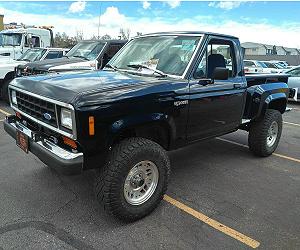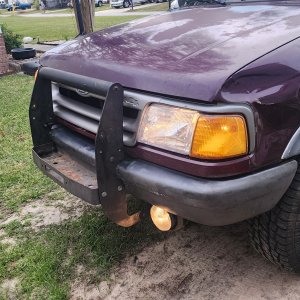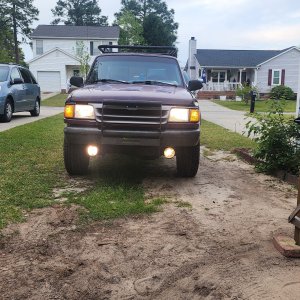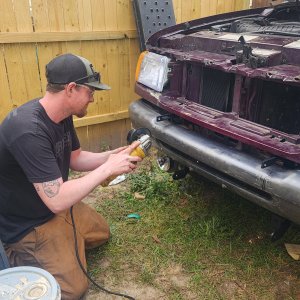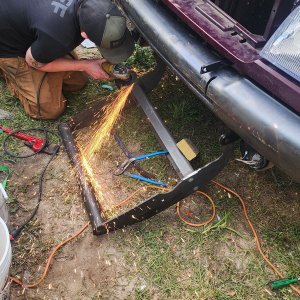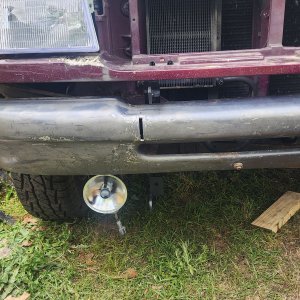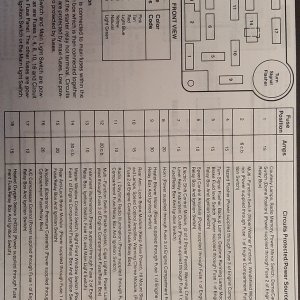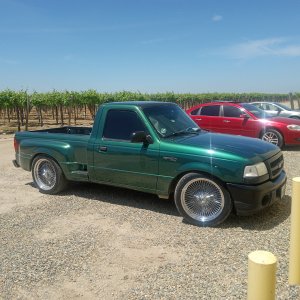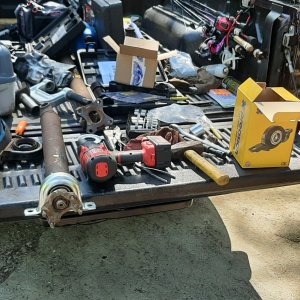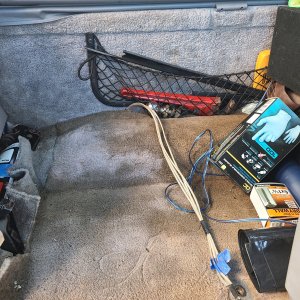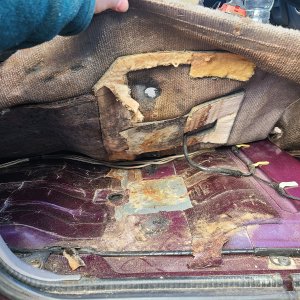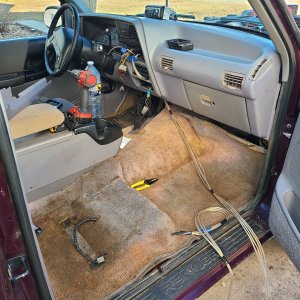wyatthansen
New Member
- Joined
- Dec 16, 2021
- Messages
- 9
- Reaction score
- 3
- Points
- 3
- Location
- Maricopa, AZ
- Vehicle Year
- 2000
- Make / Model
- Ford Ranger
- Transmission
- Manual
Hello,
So I've been lurking in the shadows of many of these and similar forums gathering information and trying to solve my problem for a couple months now... here's the issue
2000 Ford ranger 4x4 3.0l Flex fuel Vin V(8th digit) about 154,000 mi on it
-Engine reads Misfire codes on cylinders 1 and 3
-P0174 and P0171 lean codes
-Rough as heck idle
-low top end power (lucky to top out at 70-75 on the freeway after gunning it for 2 minutes to get there)
More recently:
-Even rougher idle especially at startup and when cold
-will die randomly after <10 min of city driving (dies as engine comes to idle)
-strong smell of fuel
-worse fuel mileage
So, reading through all the forums I have done/checked the following...
-Replaced the coil pack
-Checked all spark plug wires
-Checked spark at all plugs
-Felt for injectors to pop with a screwdriver at the base of each (and they did)
-Tested ECM signal to injectors
-Resistance tested each injector (they were all within spec, cant recall the number but either 14 or 18 ohms I think)
-Tested fuel rail pressure ( a solid and healthy 53 psi with no leaks)
-Ran a couple of fuel system and injector cleaners through it
-Thoroughly checked for vacuum/intake leaks with starting fluid
Then I took it to a local mechanic who tested some other things for me...
-Read codes ( all same except for a faulty coolant temp sensor which I replaced when he told me that)
-Checked backpressure on cats (those were fine)
-Then he did some compression tests and this is where things get interesting
- Compression in the cylinders was around 230 psi for most all cylinders, one or two was closer to 190-200ish psi (obviously too high)
When I bought the truck in august, the owner had or had someone do the timing chain before the sale, so that dynamite compression had me and the mechanic convinced there had to be something wrong there. And I'm no fool to pay someone $1200 to see if that's my problem so I decided to tackle the job myself. I just got done with the job(of removal and getting to the timing chain) and I found that everything seems to be in good alignment as far as the chain and gears but there was about 1/2" to 5/8" slack in the old timing chain. I slapped my new one on there and same amount of slack. The brand I used was made in USA (Cloyes) so I'm not thinking its just a bad part. There's no play in the cam or crankshaft so the slack is completely from the gears and chain. I'm not a professional but it seems to me there shouldn't be that much play. I looked at a professionally rebuilt 3.0 last week and the timing chain was pretty snug.
Long story short, I'm stumped and so is the mechanic with 25+ years under his belt. At this point I'm about to throw a long block a it but I fear that it may not solve my problem. I'm going to put this engine back together in the next couple days so I can continue to try solving my problem. Has anyone had a similar or the same experience? Where should I go next?
Thanks in advance, your help keeps me from going more insane than I already am!
P.S. A little background on myself... I'm 21 and I been wrenching longer than I been walking. I've fixed alot of vehicles for myself, my friends, and even as a side gig. I also dabble in diesels. I'm definitely not a genius but I know a couple things, I'm always looking for more knowledge so I'm all ears for anyone who's got it!
So I've been lurking in the shadows of many of these and similar forums gathering information and trying to solve my problem for a couple months now... here's the issue
2000 Ford ranger 4x4 3.0l Flex fuel Vin V(8th digit) about 154,000 mi on it
-Engine reads Misfire codes on cylinders 1 and 3
-P0174 and P0171 lean codes
-Rough as heck idle
-low top end power (lucky to top out at 70-75 on the freeway after gunning it for 2 minutes to get there)
More recently:
-Even rougher idle especially at startup and when cold
-will die randomly after <10 min of city driving (dies as engine comes to idle)
-strong smell of fuel
-worse fuel mileage
So, reading through all the forums I have done/checked the following...
-Replaced the coil pack
-Checked all spark plug wires
-Checked spark at all plugs
-Felt for injectors to pop with a screwdriver at the base of each (and they did)
-Tested ECM signal to injectors
-Resistance tested each injector (they were all within spec, cant recall the number but either 14 or 18 ohms I think)
-Tested fuel rail pressure ( a solid and healthy 53 psi with no leaks)
-Ran a couple of fuel system and injector cleaners through it
-Thoroughly checked for vacuum/intake leaks with starting fluid
Then I took it to a local mechanic who tested some other things for me...
-Read codes ( all same except for a faulty coolant temp sensor which I replaced when he told me that)
-Checked backpressure on cats (those were fine)
-Then he did some compression tests and this is where things get interesting
- Compression in the cylinders was around 230 psi for most all cylinders, one or two was closer to 190-200ish psi (obviously too high)
When I bought the truck in august, the owner had or had someone do the timing chain before the sale, so that dynamite compression had me and the mechanic convinced there had to be something wrong there. And I'm no fool to pay someone $1200 to see if that's my problem so I decided to tackle the job myself. I just got done with the job(of removal and getting to the timing chain) and I found that everything seems to be in good alignment as far as the chain and gears but there was about 1/2" to 5/8" slack in the old timing chain. I slapped my new one on there and same amount of slack. The brand I used was made in USA (Cloyes) so I'm not thinking its just a bad part. There's no play in the cam or crankshaft so the slack is completely from the gears and chain. I'm not a professional but it seems to me there shouldn't be that much play. I looked at a professionally rebuilt 3.0 last week and the timing chain was pretty snug.
Long story short, I'm stumped and so is the mechanic with 25+ years under his belt. At this point I'm about to throw a long block a it but I fear that it may not solve my problem. I'm going to put this engine back together in the next couple days so I can continue to try solving my problem. Has anyone had a similar or the same experience? Where should I go next?
Thanks in advance, your help keeps me from going more insane than I already am!
P.S. A little background on myself... I'm 21 and I been wrenching longer than I been walking. I've fixed alot of vehicles for myself, my friends, and even as a side gig. I also dabble in diesels. I'm definitely not a genius but I know a couple things, I'm always looking for more knowledge so I'm all ears for anyone who's got it!
Last edited:

